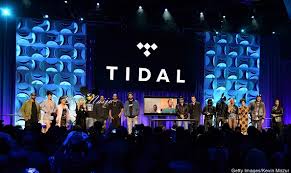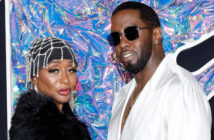Jay Z has enlisted some of music’s biggest names as equity partners in his new streaming music service, offering stock and cash in exchange for promotional and marketing support from artists including Madonna and Kanye West.
At least 15 artists were named on Monday as co-owners of Tidal, the streaming service acquired by Jay Z, whose real name is Shawn Carter, via his recent $56m acquisition of Aspiro, a Swedish music company.
The size of the cash advances and equity portions given to the participating stars is unclear but at least one act was offered as much as $3m and a 3 per cent stake in the new service, according to one manager familiar with the discussions. Tidal declined to comment on the ownership of the company.
The deals with top recording stars do not include rights to music, which are held by the large labels that represent them, said people familiar with the matter.
The structure of Mr Carter’s company, and his eagerness to include top talent in its ownership, has clear echoes of the artist-owned model established by United Artists, the Hollywood studio set up in 1919 by stars including Charlie Chaplin and Mary Pickford.
“We have joined in Tidal for the preservation of an industry and to deliver music and experiences in a way that is best for the consumer,” said Alicia Keys, one of the parade of celebrity owners, along with Daft Punk and Beyoncé, Mr Carter’s wife, who appeared on stage together in New York on Monday to announce Tidal’s relaunch.
The event was trailed with a splashy social media campaign with acts including Coldplay, Rihanna and Arcade Fire promoting the new service using Twitter hashtags.
The move comes as music streaming enters a new, highly competitive phase. Google’s YouTube and Apple are both aggressively courting music labels and artists as they bring subscription services to market this year.
Paid streaming services generated $800m in revenue for labels in 2014, eclipsing CD sales, and are closing in on downloads as music’s largest source of revenue in the US, the world’s biggest market.
Spotify, the market leader in streaming, is on track for an initial public offering, having recently hired Goldman Sachs to lead a $500m fundraising that would give the company a provisional valuation of about $8bn.
Spotify has 15m paying customers with 60m people using its free service. However, its growth has come at a cost, with tensions starting to appear in its relationships with top stars and music labels over the free, ad-supported tier.
Taylor Swift recently pulled her catalogue from Spotify after the company refused to remove her work from the free service. Universal Music Group, the world’s largest music company, is also in dispute with Spotify and is pressing the Swedish company to modify the free service — perhaps by capping the amount of time it can be used, to accelerate the conversion to higher margin, paid subscriptions.
Tidal does not have a free tier and is targeting audiophiles with a $19.99 a month service that allows users to stream tracks in high-definition. It is introducing a standard definition tier for $9.99 a month, in line with the pricing of rivals including Spotify. Ms Keys on Monday said the revamped service would include “exclusive experiences” for subscribers.
Apple’s new streaming service, which it will launch this summer, will also not have a free tier. The company acquired the service when it bought Beats Electronics, the audio group founded by the hip-hop star Dr Dre and Jimmy Iovine, last year for $3bn.




